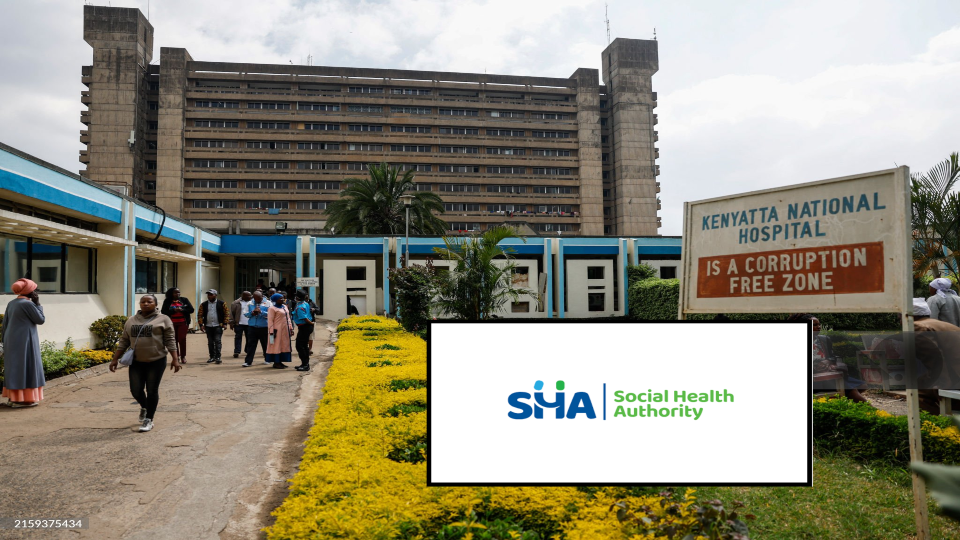Kenyatta National Hospital Outlines Mandatory Steps for SHA Admission
Nairobi, Kenya - Kenyatta National Hospital (KNH), the country’s leading referral hospital, has released a comprehensive guide detailing the steps patients must follow to secure admission under the Social Health Authority (SHA) coverage. The announcement, made on July 8, 2025, aims to streamline the admission process and ensure patients benefit from the SHA’s universal healthcare framework without incurring unexpected out-of-pocket expenses. The hospital emphasized that failure to adhere to these steps could result in SHA denying coverage for inpatient costs, leaving patients to bear the financial burden.
The SHA, a cornerstone of Kenya’s Universal Health Coverage (UHC) initiative, replaced the National Health Insurance Fund (NHIF) in 2024, introducing a more inclusive system where contributions are based on income levels, and the government covers costs for vulnerable populations. KNH, a Level 6 hospital, has fully integrated SHA’s Emergency, Critical, and Chronic Illness Fund (ECCIF) and Social Health Insurance Fund (SHIF) into its inpatient and outpatient services. The hospital’s new guidelines come amid efforts to curb billing fraud and ensure compliance with SHA regulations, as the government cracks down on facilities exploiting the system.
KNH’s notice outlines a clear three-step process for patients seeking admission under SHA coverage:
-
Present a Valid SHA-Registered ID: Patients must bring the national identification card used during their SHA registration. KNH stressed that patients need to confirm their SHA membership is active. An active SHA-registered ID number is the first requirement to initiate the admission process under the SHA framework.
-
Obtain a Confirmation Number from SHA: After presenting their ID, patients must receive a confirmation number from SHA, verifying that their visit has been successfully initiated. This step ensures that the patient’s admission is logged in the SHA system, a critical requirement for coverage eligibility.
-
Verify Active SHIF Status: Patients are required to check their Social Health Insurance Fund (SHIF) status to confirm it is active. If the status is inactive, patients must activate it immediately. Upon activation, they should return to KNH’s health information desk to obtain a new reference number. This reference number is essential for SHA to cover inpatient costs from the date of issuance.
KNH warned that SHA will not cover inpatient expenses if these steps are not followed precisely at the time of admission. “Patients must complete these steps promptly to avoid delays or unexpected costs,” the hospital stated, underscoring the importance of compliance to ensure seamless access to healthcare services.
The SHA inpatient package at KNH covers a wide range of services for admitted patients. These include disease management during the hospital stay, pre-admission evaluations, hospital accommodation, meals, and nursing care in general ward beds. Additional services include intra-admission consultations and reviews, laboratory tests, imaging, medical procedures, medications, bedside services such as physical and occupational therapy, oxygen, therapeutic nutritional support, blood transfusions, and post-discharge medication or follow-up care within the treatment plan. These benefits aim to provide holistic care, ensuring patients receive comprehensive treatment without financial strain.
The release of these guidelines follows recent government actions to address fraudulent practices within the SHA system. President William Ruto recently announced the closure of over 1,000 health facilities accused of submitting fake claims or unnecessarily admitting patients to inflate costs. Health Cabinet Secretary Aden Duale has also directed SHA to vet hospital claims strictly based on licensed bed capacity, declaring that claims for patients sharing beds will be treated as fraudulent. KNH, with a capacity of 1,800 patients, is under scrutiny to adhere to these regulations, and the new guidelines reflect the hospital’s commitment to transparency and compliance.
Duale has reported that 24.4 million Kenyans have enrolled in SHA as of early July 2025, with 9,365 healthcare facilities contracted nationwide, including 5,219 public, 3,650 private, and 496 faith-based institutions. The government is also auditing patient numbers across all hospital levels to ensure seamless service delivery. KNH’s proactive measures aim to align with these reforms while protecting patients from unauthorized charges.
The introduction of SHA has not been without challenges. Some patients have reported being charged illegal fees at public hospitals despite being registered with SHA. President Ruto has urged Kenyans to report such incidents to local authorities, emphasizing that Level 1 to 4 hospitals should provide free healthcare to SHA-registered patients. KNH’s guidelines are a direct response to these concerns, aiming to standardize the admission process and prevent fraudulent billing practices.
Public sentiment on social media platforms reflects a mix of appreciation and frustration. Many Kenyans have welcomed KNH’s clear instructions, with some praising the hospital for addressing confusion around SHA admissions. However, others have highlighted logistical challenges, such as difficulties in verifying SHIF status or obtaining confirmation numbers, particularly in rural areas with limited access to digital systems.
KNH’s new guidelines mark a significant step toward ensuring that patients can access SHA benefits efficiently and transparently. As Kenya continues its push for universal health coverage, the hospital’s role as a national referral center and SHA-accredited provider is pivotal. Patients are encouraged to familiarize themselves with the three-step process and ensure their SHA membership is active before seeking admission.
For those facing issues with SHA registration or admission processes, KNH has advised contacting the hospital’s health information desk or SHA authorities for assistance. The government has also called on Kenyans to remain vigilant and report any suspicious activities related to SHA to prevent further fraud and ensure the system’s integrity.
As the SHA program evolves, KNH’s efforts to clarify admission procedures and align with national healthcare reforms demonstrate a commitment to improving access to quality care for all Kenyans. The hospital’s guidelines serve as a model for other facilities navigating the complexities of the SHA system, paving the way for a more equitable and efficient healthcare landscape.


